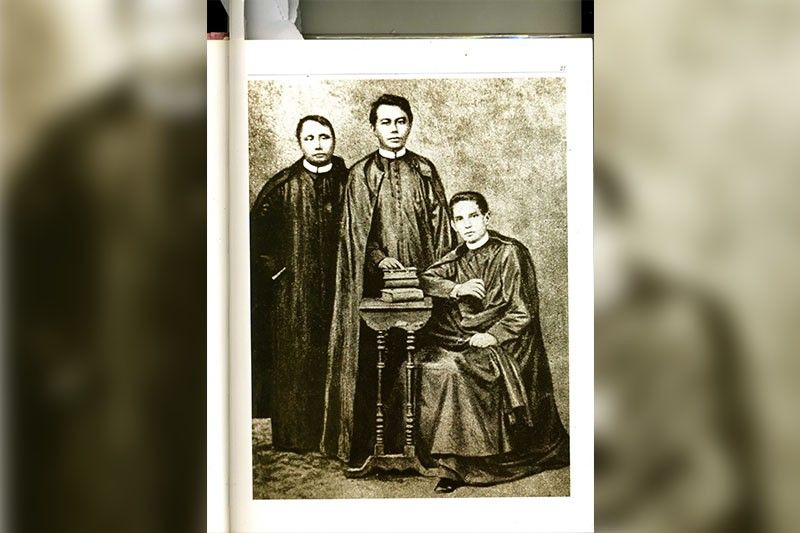'GOMBURZA The Movie' to share 'truth' about the Spanish era martyrs

MANILA, Philippines — The story behind Filipino martyrs Mariano Gomez, Jose Burgos, and Jacinto Zamora, or simply GomBurZa, will be the centrepiece of Jesuit Communications' (JesCom) second major motion picture film as the country celebrates the troika's 150th death anniversary.
Dubbed "GOMBURZA The Movie", the motion picture film directed by renowned director Pepe Diokno aims to share the facts behind the life and death of the three Filipino priests.
"Especially in the age of fake news, when we talk about the history of the Church, we have these fake news na kumakalat. Like the symbol of Padre Damaso is very dominant. So the first objective [of this film] is to really share truth — what happened historically, what was the GomBurZa all about, what was the involvement of the Church in politics at that time, and so on and so forth," said Executive Producer Fr. Nono Alfonso, SJ.
GomBurZa were executed by garrote on Feb. 17, 1872 in Bagumbayan by Spanish authorities on charges of subversion.
Their execution became a catalyst for the rise of Philippine nationalism at that time, that would ultimately lead to the Philippine Revolution more than a decade after in 1896.
National hero Jose Rizal even dedicated his second novel, El Filibusterismo, to the three priests.
Facts to 'defeat' historical revisionism
Also on the minds of the film makers of "GOMBURZA The Movie" is sticking to the facts no matter how painstackingly difficult it may be.
Though they could be given creative liberty in terms of how they can present the narrative of GomBurza, the team behind the film led by History Consultant Fr. Rene Javellana, SJ, is determined to stay true to the story -- facing the good and the bad of the narrative.
"Precisely because there is historical revisionism, you have to come up and say wait, yung mga kinekwento niyo, nasan ang facts niyan? The only way to defeat historical revisionism is to have your facts straight. Acknowledge what you know and what you don't know," said Javellana.
"Revisionism is interpretation eh, but facts and data you cannot change. Sometimes people create revisions wth absolutely no facts, it's all fantasy -- so that is your enemy. The cure to fantasy is fact," he added.
What does it mean to be 'Filipino'?
As for what the film makers want to share with its audiences once the movie comes out, writer Rody Vera shared the central idea of his script that revolved around the meaning behind the word 'Filipino'.
"The way I understood [the story] and the way I wrote it, mas nagfocus ako dun sa pag-trace kung paano tayo naging Filipino," Vera said, noting that it was through GomBurZa that the term "Filipino" was first coined.
"Di natin yun binibigyan ng masyadong pansin eh," he added.
Through finding out the roots of our people, Vera says, will help us unite our national identity.
"Lagi lang natin sinasabi mahalin natin ang ating bayan, very patriotic, etc. pero hindi natin inaalam kung paano tayo nabuo bilang isang bayan na hanggang ngayon pinagbubuno parin naman natin... Eto kumbaga [yung] orihinal na bukal kung saan nagsimula mismo yung notion ng pagiging Filipino," he said.
JesCom plans to be able to produce and release the movie to Filipino filmgoers by the Metro Manila Film Festival at the end of this year.
- Latest




























